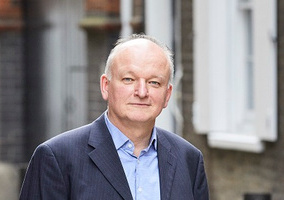All small charities need funds and volunteers, but supplies of both are decreasing.
Ask any charity trustee about funding difficulties and core funding comes top of the list. For some inexplicable reason funders are only interested in “projects” which by their very definition must be innovative and thus have questionable sustainability.
Grant-givers do not appear to understand that taking on a new project, however desirable, is impossible unless the main work of the charity is properly funded.
I chair the trustees of a small charity providing meals on wheels for the elderly together with a befriending service. A commercial kitchen is a necessity and the maintenance and replacement of the heavy-duty equipment, necessary to provide in excess of 500 meals a week, is a constant headache.
These expenses are considered capital expenditure by funders instead of the core funding that they actually are. When a piece of equipment fails (some of ours is 20 years old) the replacement cost runs into thousands of pounds. This has to be found from the small profits of our two charity shops (both requiring rent, rates, insurance and utilities) plus any grant we can source.
Although we rely heavily on volunteers we still have a considerable wage and pension cost to meet each month, both increasing each year. The car expenses alone of our volunteer drivers who deliver meals are in excess of £20,000 annually.
We have had experience in the past months of two organisations being funded for a “project” to set up a befriending service in our area, although we have run a successful service for 15 years. No attempt was made by the funder to ascertain if such a service already existed.
Both projects failed and the money was wasted. I pointed out to both organisers that we would all be fishing in the same pool for volunteers and that there are simply insufficient to go round. This, of course, proved to be the case.
Some five years ago a new organisation obtained a grant of several hundred thousand pounds over five years as an umbrella group to improve transport. This has achieved nothing but the employment of two people. Such a munificent grant is beyond our wildest dreams but it appears to be the case that existing charities with a proven track record of service (we have been in existence for 27 years) are simply of no interest to funders who much prefer some doubtful project.
Volunteering boost needed
Recruiting volunteers is another problem. Our local county council announced recently that adult social services in their present form are unsustainable and that there will have to be more care in the community. That means us. Together with care agencies we are keeping very aged residents (most over 90 and five over 100 years old) in their own homes, living independently and out of care homes. This saves the country many thousands of pounds.
There is a limited number of people willing or able to devote their time to delivering meals and they are becoming more and more difficult to source. The “younger old” who have been the backbone of volunteering for decades are now either working longer or looking after their own very aged parents and/or grandchildren and sometimes great-grandchildren so that both of the youngsters' parents can work.
It is going to become essential, very shortly, to incentivise volunteering, otherwise the pool of volunteers will dry up. A simple way to do this would be to allow a volunteer with a certain number of accredited volunteering hours a discount on council tax. Discounts are already available for students, single households and the disabled so the necessary mechanism is in place.
The entire system of charity funding requires an overhaul together with a national policy on incentivising volunteering. To discuss these real problems the government does not need to set up another endless commission but should consult and take into consideration the views of charity workers at the sharp end.
When I discuss our work with any local official or funder I always invite them to visit the kitchen and accompany a driver on his delivery round. It is amazing how viewing the charity in action and experiencing its benefits concentrates the mind.
Related articles











